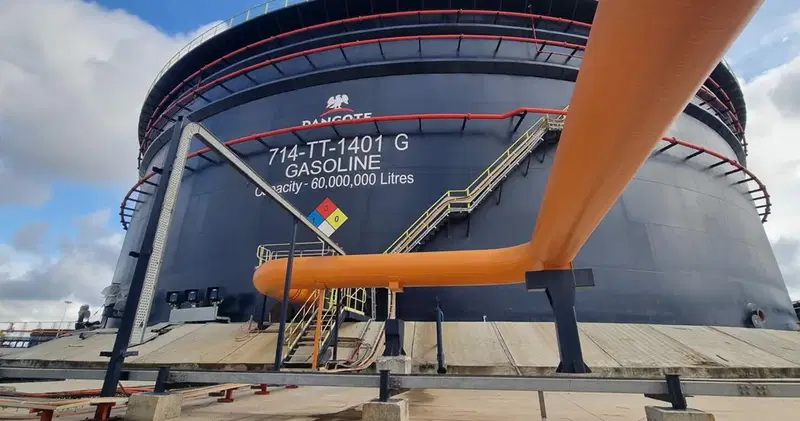Private fuel depots in Lagos and surrounding areas were largely deserted yesterday as Dangote Petroleum Refinery commenced direct petrol supplies to marketers. Industry sources noted that the shift to direct distribution has significantly reduced activity at private depots, with operators anticipating benefits from the new supply chain.
An anonymous source stated, “Dangote Refinery’s direct supply to marketers has led to minimal operations at private depots, as the focus shifts to this new model.”


Olatide Jeremiah, CEO of Petroleumprice.ng, commented, “The downstream petroleum sector is undergoing a shake-up, with Dangote Refinery emerging as the dominant player. The rollout of 1,000 trucks on Monday has intensified pressure on depot owners and retailers, leading to a sharp drop in purchases. For the first time, while global oil prices rise, depot prices are falling due to local market dynamics driven by Dangote Refinery. This shift is pushing the industry toward best practices and will ultimately influence pump prices.”
At a conference marking the first anniversary of petrol production from the 650,000 barrels-per-day refinery on Monday, Aliko Dangote, President and CEO of Dangote Petroleum Refinery, highlighted the facility’s impact on Nigeria’s energy security. He noted that persistent fuel queues, a problem since 1975, have begun to ease since the refinery started distributing petrol on September 15, 2024.


“Nigerians are entering a new era, free from the long-standing issue of fuel queues,” Dangote said.
Reflecting on the refinery’s challenging journey, Dangote emphasized its transformative role in Nigeria’s downstream sector. “Some thought we were disrupting their interests, but that’s not the case. We’ve made Nigeria and Africa proud. Previously, only two African nations avoided importing petrol, but they’ve since resumed imports, which is a setback for the continent,” he said.


Dangote also revealed the significant risks involved in the refinery’s development, noting warnings from industry experts, investors, and government officials who believed such large-scale projects were typically undertaken by sovereign nations. “If the project had failed, lenders would have seized all my assets. But we believed in Nigeria and Africa, and that faith drove us forward,” he said.




